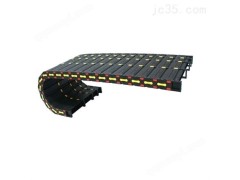Humidity treatment procedure from BASF, Germany
< The ideal humidification treatment procedure involves immersing the parts in hot water and exposing them to a warm, humid climate or saturated steam. Humidification treatment in hot water is relatively simple because the equipment required is minimal. Best results are obtained by using a water bath heated to -°C. Water baths must be insulated and covered to avoid excessive heat loss. If the surface of the water is covered (eg with ping pong balls) most heat loss can be avoided. A disadvantage of the water immersion method is that staining and damage to the finished product cannot always be avoided, especially for glass-fiber-reinforced colored polyamide moldings.
< If the conditioning process is carried out under particularly mild conditions, that is, in humid air (the temperature does not exceed ℃ and the relative humidity is higher than %), the above disadvantages can be avoided and commercial conditioning equipment can be used for operation.
< < Behavior of humidity-treated molded parts from BASF, Germany under normal seasonal climate fluctuations
< When climatic conditions change, humidity-treated parts will release moisture at a rate that is related to drying The water absorption rate in the new molded state is also slow. In other words, the effect of ambient humidity fluctuations on the moisture content of molded articles is not significant and occurs with considerable lag. Since the relevant changes in linear dimensions are smaller than slight fluctuations in moisture content (by a factor of ), fluctuations in climatic conditions are usually negligible in practical operations.
<
< < BASF of Germany inhibits corrosion of injection molded parts with steel core
< The steel core in injection molded parts is usually corroded during the humidity conditioning process. If hot water or steam is used for conditioning, corrosion can be prevented by adding specific alkaline substances (such as -.% hexamethylenetetramine. In this case, there is no need to worry about damage.
Textile machinery Zero fogging materials for industrial equipment as well as daily necessities and packaging films.






 Year1
Year1




 WhatsApp
WhatsApp





